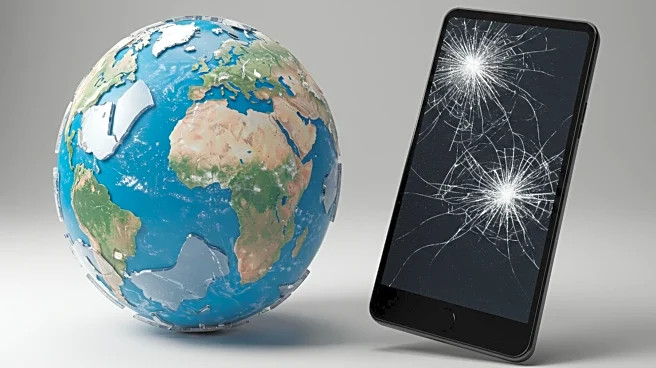What's Happening?
Negotiations for a Global Plastics Treaty have collapsed for the second time in less than a year, as global leaders failed to agree on a unified strategy to tackle plastic waste. The discussions, held in Geneva, followed an earlier breakdown in Busan, South Korea. Despite new terms and clear goals, delegates from 184 countries departed without reaching a consensus. This failure highlights the ongoing challenges faced by manufacturers, particularly in the technology sector, which relies heavily on plastic components. The lack of a legally binding global regulation leaves manufacturers to navigate a fragmented regulatory environment, complicating strategies related to sustainability and innovation.
Why It's Important?
The collapse of the Global Plastics Treaty negotiations underscores the difficulties in achieving international cooperation on environmental issues. For the technology sector, which is heavily dependent on plastic components, this development poses significant challenges. Without a unified global strategy, companies must contend with varying regulations across different countries, potentially increasing costs and complicating supply chain management. This situation could hinder efforts to integrate sustainable practices and innovations into manufacturing processes, affecting the industry's ability to address environmental concerns effectively.
What's Next?
The failure to reach an agreement on the Global Plastics Treaty suggests that future negotiations will be necessary to address the growing plastic waste crisis. Stakeholders in the technology sector may need to advocate for more cohesive international policies or develop their own sustainability initiatives to mitigate the impact of fragmented regulations. Additionally, there may be increased pressure on governments and international organizations to find alternative solutions to curb plastic pollution and support industries in transitioning to more sustainable practices.











